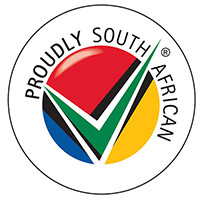While we have all seen the extent of public sector fraud and corruption, private sector corruption is just as damaging to the state and our economy.
One such example is the illegal importation of goods into our country that flood mostly, but not exclusively, informal sector markets, which are most vulnerable and therefore receptive to cheap commodities.
Illegal importation takes a number of different forms. These include under-invoicing, where the importer declares a value on the goods that is significantly lower than their real worth; the false declaration of goods when the importer claims to be importing something different from what is actually in his consignment because it carries a lower import duty (for example, clothing and textiles carry a 40 percent import duty, making the sector among the highest rated); plain smuggling, where the items are not declared at all; or re-routing goods via another country, which may have a more favourable trade agreement with SA than the importer's own.
Of course, while this is private sector fraud on the part of the importer and receiving entity in South Africa, it requires the collusion or at least some turning of a blind eye by customs and excise duty officials, which also needs to be dealt with decisively.
Last year, Southern African Clothing and Textile Workers Union marched on the SA Revenue Service (Sars) headquarters in Pretoria to protest against the lack of enforcement and inspection of imported goods, specifically in their sector, which, as we know, has been decimated by massive amounts of cheap imported fabrics and ready-made garments.
This despite the introduction of a price reference system, devised by government, labour and business, to make it easier for customs officials to spot false amounts on import invoices. But it seems that there are many instances when they ignore flagrant falsification of facts and figures and allow the goods to pass across our borders.
The result of this illegal dumping is a massive loss to the fiscus. According to Sars figures, in 2014/15, they conducted 630 successful seizures of R68.8 million worth of illicit clothing and textiles.
The loss to the fiscus is a loss to public spending on health, education and training, and other basic services. And the losses are not only in tax revenue, but are felt massively in the jobs market. When cheap imported goods replace locally manufactured equivalent products, factory closures and lay-offs follow.
Ironically, in the very act of buying cheap, illegally imported goods, we are perpetuating our own poverty cycle by depriving ourselves of job opportunities and instead are stimulating productivity in countries whose exporters have few morals and no conscience.
In addition, there are risks to consumers when we knowingly accept cheap imports that evade SABS verification and local industry standardisation.
We have seen dangerous child car seats which cannot properly be anchored or secured and paraffin stoves that are highly prone to cause fires that ravage densely populated informal settlements where they are most prevalent.
In the automotive sector, illegal and unregulated filters, which comprise the largest portion of after-market sales, can pose a risk to the vehicle in which they are fitted.
GUD Filters manufacture oil, fuel and air filters and are Proudly South African members, verified, checked and audited and are an example of how Proudly South African as an organisation ensures that companies bearing its logo are accredited and quality controlled, and safe for consumers.
So, while we are working to drive demand, we are also ensuring there is a safe, legal and compliant supply of goods and services, produced or manufactured here. These, and not items that have been produced overseas and brought in through South Africa's back door and which are lining the pockets of the foreign producers and importers, are what we should be looking out for in our shops and on our shelves.
Unemployment persists, affecting many of us. Vusi Nova's song Asiphelelanga is most relevant this week - too many of us are still "left out" - and those tasked with protecting our borders from illicitly imported goods should be helping us to grow our economy to create meaningful, decent and sustainable jobs.


